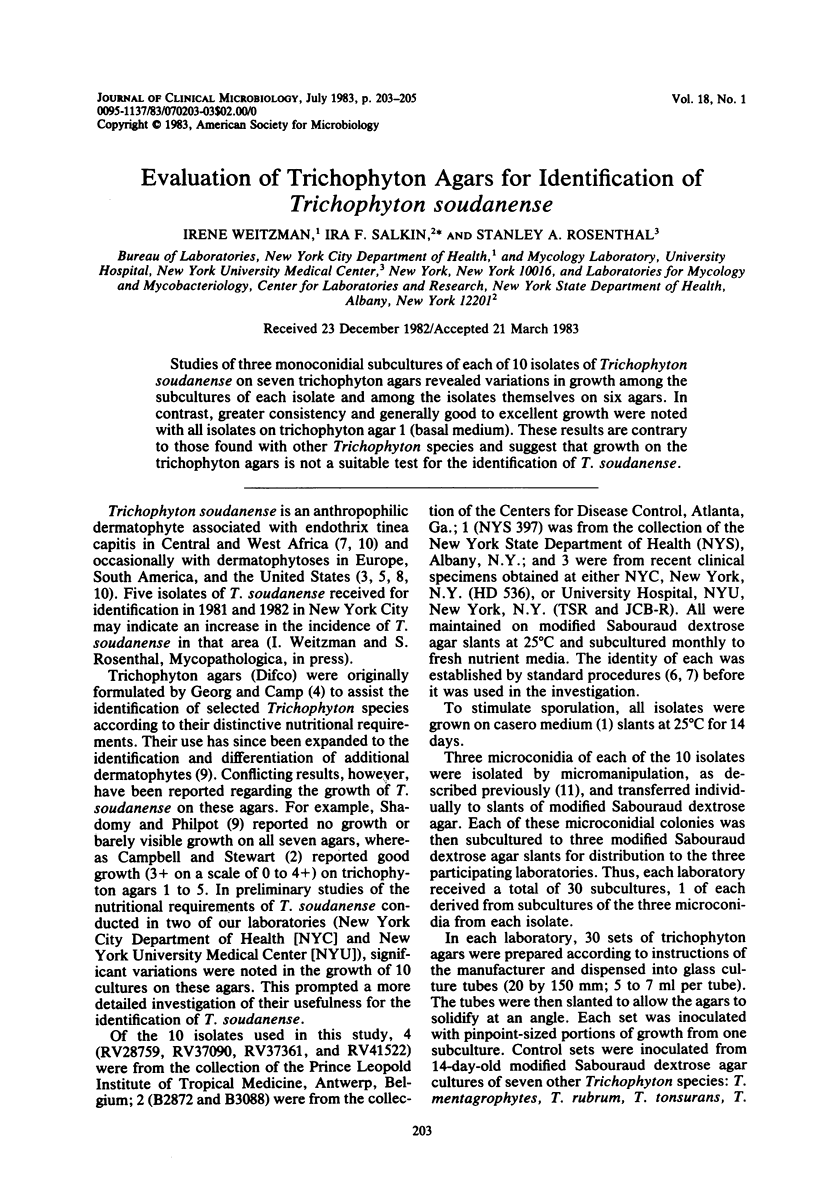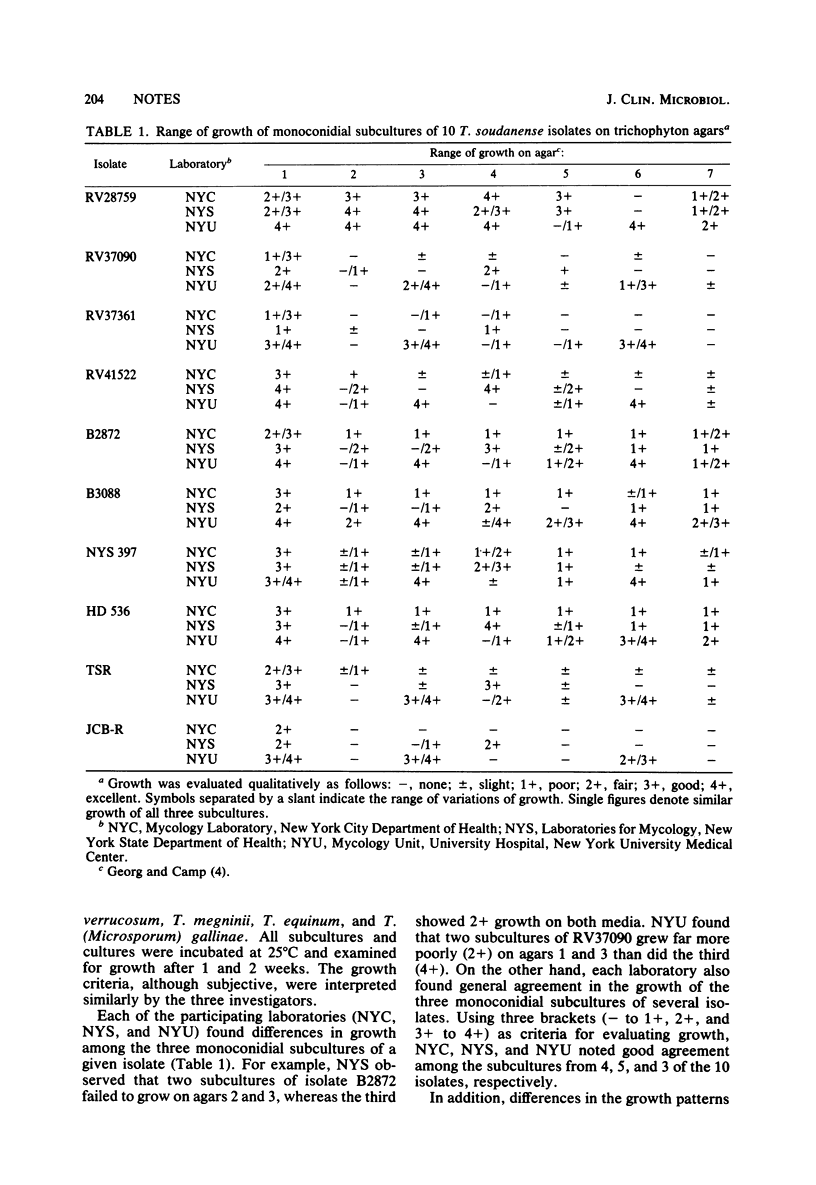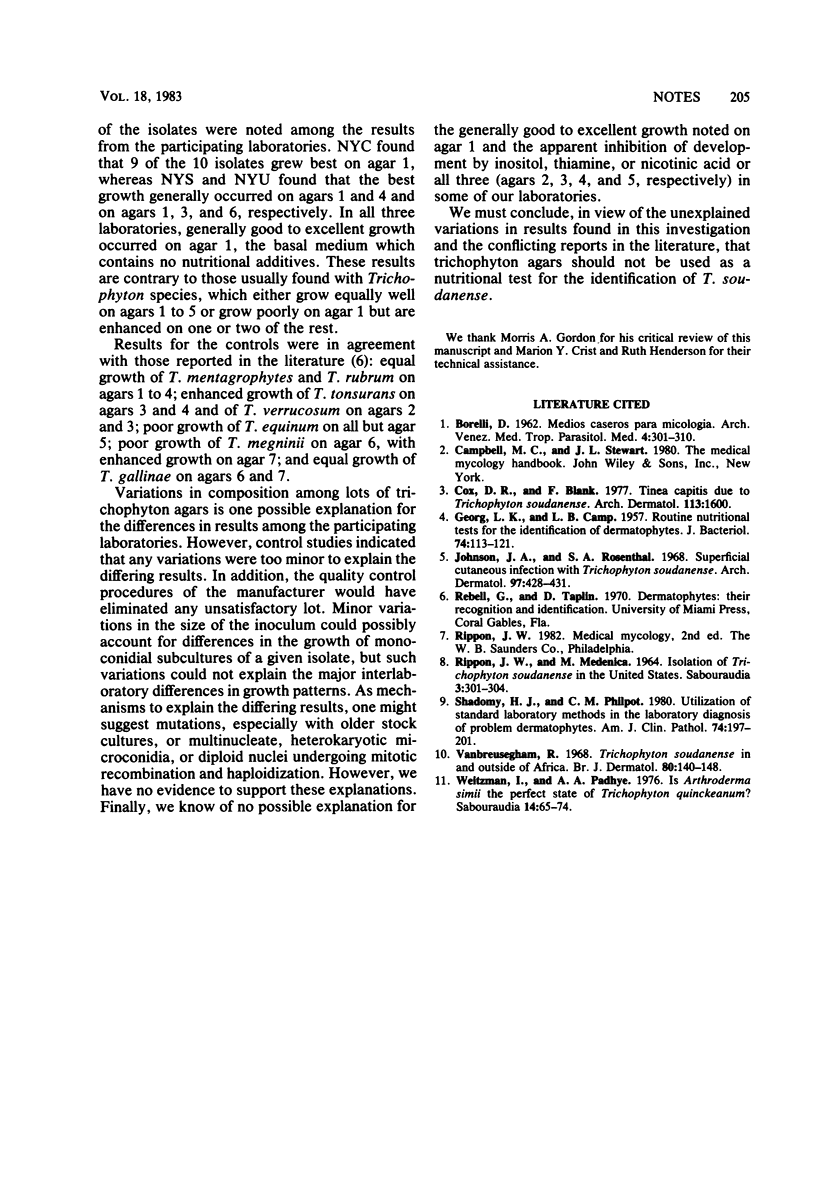Abstract
Studies of three monoconidial subcultures of each of 10 isolates of Trichophyton soudanense on seven trichophyton agars revealed variations in growth among the subcultures of each isolate and among the isolates themselves on six agars. In contrast, greater consistency and generally good to excellent growth were noted with all isolates on trichophyton agar 1 (basal medium). These results are contrary to those found with other Trichophyton species and suggest that growth on the trichophyton agars is not a suitable test for the identification of T. soudanense.
Full text
PDF


Selected References
These references are in PubMed. This may not be the complete list of references from this article.
- Cox D. R., Blank F. Tinea capitis due to Trichophyton soudanense. Arch Dermatol. 1977 Nov;113(11):1600–1600. [PubMed] [Google Scholar]
- GEORG L. K., CAMP L. B. Routine nutritional tests for the identification of dermatophytes. J Bacteriol. 1957 Aug;74(2):113–121. doi: 10.1128/jb.74.2.113-121.1957. [DOI] [PMC free article] [PubMed] [Google Scholar]
- Johnson J. A., Rosenthal S. A. Superficial cutaneous infection with Trichophyton soudanense. Arch Dermatol. 1968 Apr;97(4):428–431. [PubMed] [Google Scholar]
- Rippon J. W., Medenica M. Isolation of Trichophyton soudanense in the United States. Sabouraudia. 1964 Oct;3(4):301–302. [PubMed] [Google Scholar]
- Shadomy H. J., Philpot C. M. Utilization of standard laboratory methods in the laboratory diagnosis of problem dermatophytes. Am J Clin Pathol. 1980 Aug;74(2):197–201. doi: 10.1093/ajcp/74.2.197. [DOI] [PubMed] [Google Scholar]
- Vanbreuseghem R. Trichophyton soudanense in and outside Africa. Br J Dermatol. 1968 Mar;80(3):140–148. doi: 10.1111/j.1365-2133.1968.tb12283.x. [DOI] [PubMed] [Google Scholar]
- Weitzman I., Padhye A. A. Is Arthroderma simii the perfect state of Trichophyton Quinckeanum? Sabouraudia. 1976 Mar;14(1):65–74. [PubMed] [Google Scholar]


